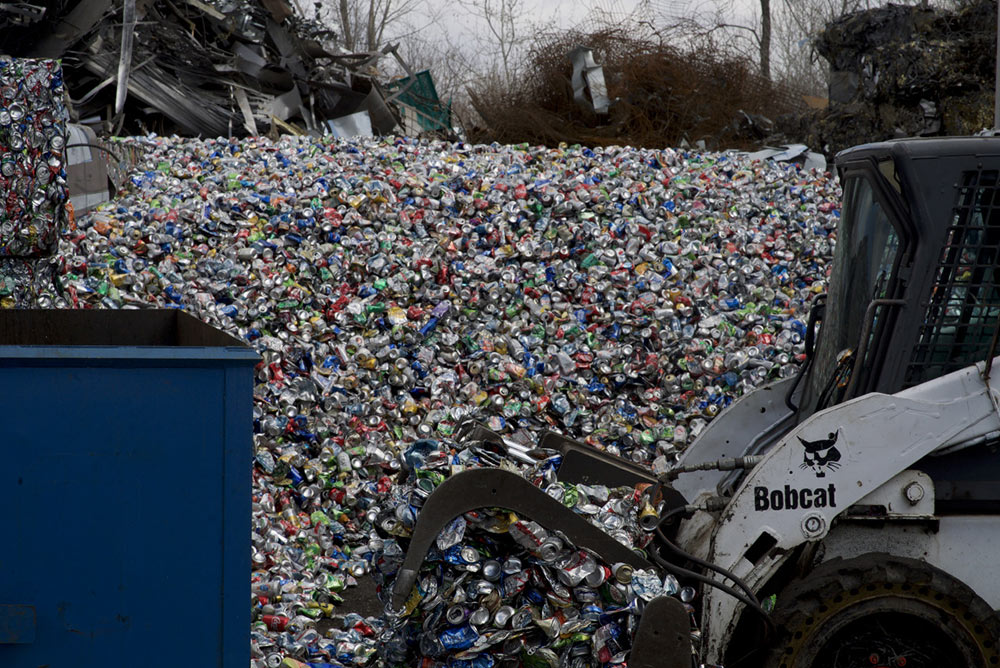
What Are the Various Scrap Metal Types?
Recycling scrap metal can be confusing at times especially to those starting out. There are different scrap metal grades, classifications, and metal types. While it might all seem irrelevant, you must always know what type of metal you are dealing with.
Having a proper understanding of scrap metal classification will set you up for success whether you are simply looking to recycle scrap metal to earn some extra cash or you are using recycled scrap metal to build a structure.
Scrap metal is often regarded as waste, but it is still a popular commodity and valuable product. However, before you start to recycle the scrap metal, you must first understand the different classifications.
All metals fall under one of two classifications:
- Ferrous
- Non-Ferrous
Ferrous Metals
Ferrous metals are the most commonly recycled metal types. In fact, the United States processes enough ferrous metal every day, by weight, to build 25 Eiffel Towers each day of the year, which means that it is a lot of metal.
The easiest way to differentiate ferrous metals from non-ferrous metals is that all ferrous metals are magnetic. The reason why this is the case is that ferrous metals are either steel or iron or at least contain it.
Cast iron skillets, cars, ovens, and refrigerators are just some of the common items made of ferrous metals.
Ferrous metals also contain a high carbon content, which usually makes them prone to corrosion or rust thus making them obsolete.
Non-Ferrous Metals
Non-ferrous metals do not contain any iron, which means that they are not magnetic and are generally more resistant to rust and corrosion than ferrous metals. These metals are typically used in building and construction applications such as pipes, roofing, gutters, and electrical.
Non-ferrous metals include tin, brass, zinc, lead, nickel, gold, among others. Common properties of non-ferrous metals are that they are lightweight and malleable and these properties are what makes them ideal for aircraft construction.
Scrap Metal Types
If you get down to the nitty-gritty classifications, there are numerous types of metal. Once you know the different scrap metal types that you are dealing with, it will be easier to know what you can or cannot do with it, what its values is, and where it is usually found.
Aluminum
It is one of the most often recycled scrap metals. Aluminum can be found in food wrap foils, soda cans, storm windows, screen door frames – just to mention a few items.
Brass
It is a metal that’s commonly found around the home. Brass can be found in places such as brass-plated crockery, doorknobs, as well as old bed frames.
Carbide
Carbide can be found in the drill bits or tool bits for those that have many tools. So, whenever you get a new toolset for Father’s Day or are simply replacing the broken pieces, keep in mind that they can be recycled as opposed to simply throwing them in the trash.
Copper
It is the third most commonly used metal in manufacturing and construction. Copper is a highly sought after and valuable metal. It is commonly found in the living room décor, household plumbing, kitchen sinks, appliances, as well as electronic wiring.
Iron
Household items such as lawn mowers, cast-iron pots, iron railings, or even swings in your backyard are acceptable as scrap metal. A lot of outdoor furniture is also usually made of iron.
Lead
Mining lead requires so much energy that manufacturers prefer to purchase recycled lead since it saves both time and money. Lead is highly toxic, so ensure that you protect yourself and your surroundings whenever you handle it. Older houses were made with lead water pipes that must be replaced within the shortest time possible since they pose a serious threat to health.
Titanium
It is used in almost everything from airplanes to jewelry, which is why it is so valuable. When you have such a versatile metal it can be used on several different projects. It is also resistant to corrosion and highly durable.
Recycling Scrap Metal
NRI purchases, processes, and sells all types and classifications of scrap metal. The key benefit associated with recycling scrap metal besides taking it off your hands is that it ensures that it never ends up in landfills, which is great for the environment.
Buying recycled scrap metal helps manufacturers save money and time since they don’t have to spend resources and money getting new materials.
If you recycle your scrap metal, you can receive extra revenue, save manufacturers money, all while ensuring that everyone else has a cleaner and healthier environment.

